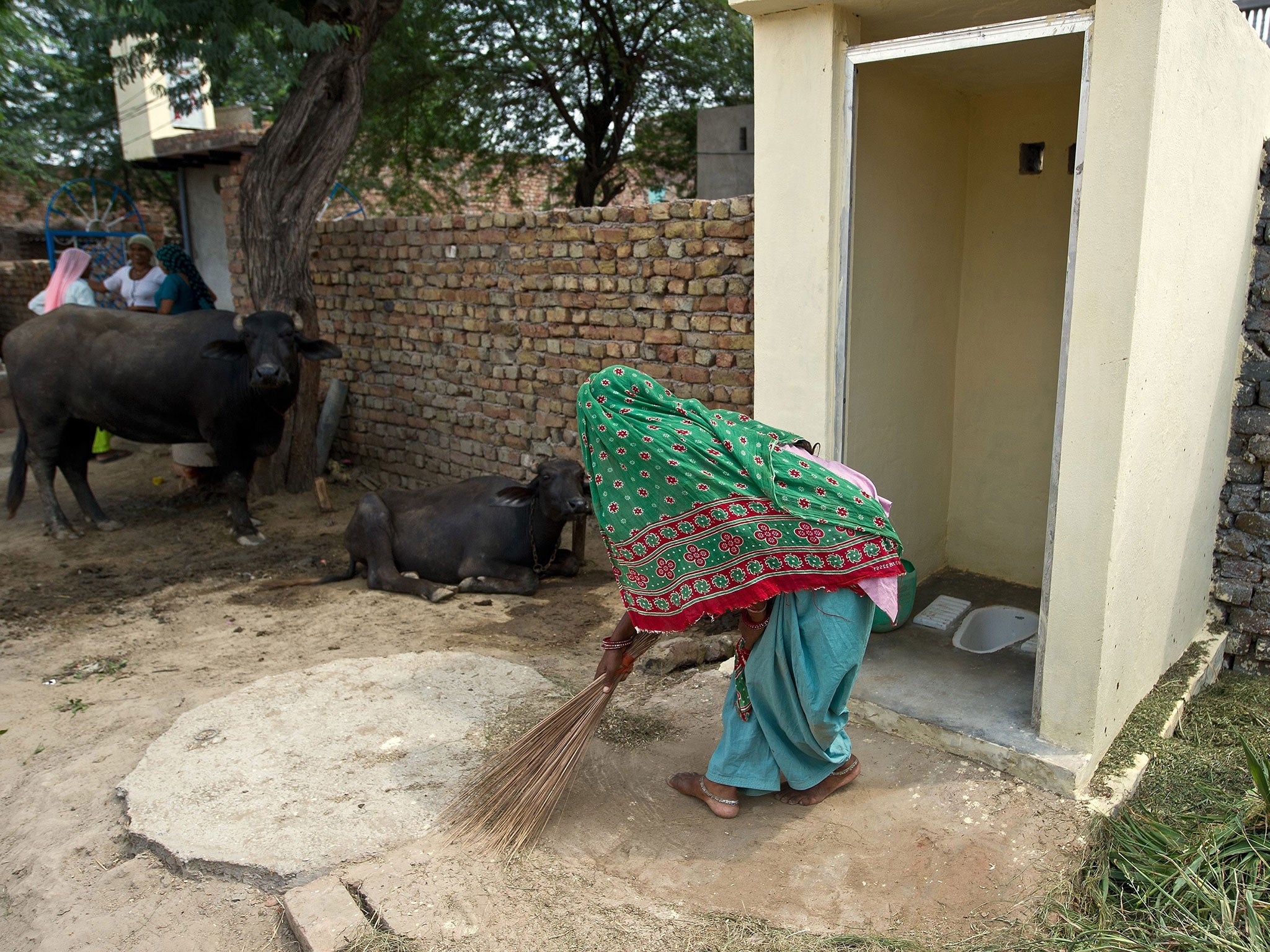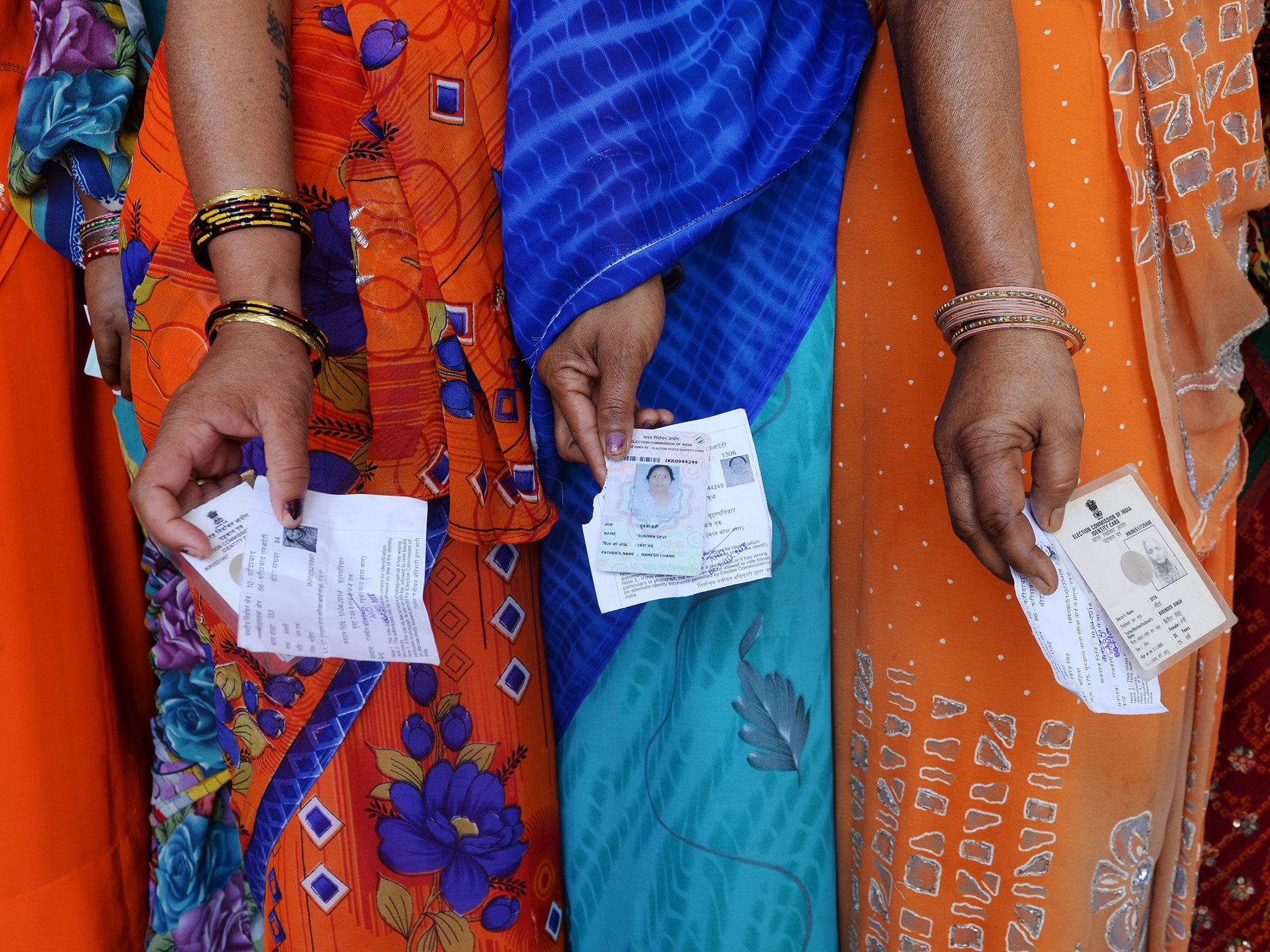Indian authorities spark anger with law banning candidates without 'functional toilet' from running for office
The panchayat elections in Haryana were delayed by three months by a legal challenge and started on Sunday

Your support helps us to tell the story
From reproductive rights to climate change to Big Tech, The Independent is on the ground when the story is developing. Whether it's investigating the financials of Elon Musk's pro-Trump PAC or producing our latest documentary, 'The A Word', which shines a light on the American women fighting for reproductive rights, we know how important it is to parse out the facts from the messaging.
At such a critical moment in US history, we need reporters on the ground. Your donation allows us to keep sending journalists to speak to both sides of the story.
The Independent is trusted by Americans across the entire political spectrum. And unlike many other quality news outlets, we choose not to lock Americans out of our reporting and analysis with paywalls. We believe quality journalism should be available to everyone, paid for by those who can afford it.
Your support makes all the difference.Authorities in an Indian state have been accused of excluding poor candidates from running for office by making a “functional toilet” compulsory in their homes.
Anger over changes to electoral regulations in Haryana, where an estimated 40 per cent of homes do not have lavatories, provoked an appeal to India’s Supreme Court that delayed the polls.
But judges upheld the controversial Haryana Panchayati Raj (Amendment) Act last month, which also banned anyone with previous criminal charges against them, with overdue loan payments or electricity bills or without a set level of educational qualifications from standing in elections.
The law stipulates that candidates must also “submit a self declaration to the effect that he has a functional toilet at his place of residence”.
Opponents argued that the requirements excluded an unacceptable proportion of prospective politicians in the panchayat (village administration) elections.

Required educational attainment is set at matriculation for men but at Class 8 for women and anyone in “scheduled castes”.
The Haryana state government defended the law by saying it would improve the quality of village administration, literacy and sanitation awareness.
“The verdict justifies our stand that villages need educated representatives. This will strengthen democracy at the Panchayat level,” a Haryana government spokesperson told NDTV.
But the All India Democratic Women’s Association (Aidwa) called it a “blatant constitutional violation”.
“This will have long term implications for the fundamental rights of all the socially and economically marginalised sections including Dalits and women,” a spokesperson said.
“Aidwa strongly opposes the attempts of the Haryana Government to disenfranchise a huge section of the population from contesting the ensuing panchayat elections in the state.
“It is clear that these conditions will target people suffering from socio-economic deprivation from contesting elections.”
According to the 2011 census, 69 per cent of households in Haryana state have toilets and 30 per cent of people are forced to defecate in the open, the Times of India reported, despite continuing efforts by the local government to improve sanitation.
According to its own analysis, Aidwa said the new law would exclude 83 per cent of Scheduled Caste women, 72 per cent of other women, 71 per cent of Scheduled Caste Men and more than half of other men from elections.
The court appeal delayed the Panchayat elections due for October in Haryana by three months and the first phase of polls were conducted on Sunday.
Subscribe to Independent Premium to bookmark this article
Want to bookmark your favourite articles and stories to read or reference later? Start your Independent Premium subscription today.
Join our commenting forum
Join thought-provoking conversations, follow other Independent readers and see their replies
Comments